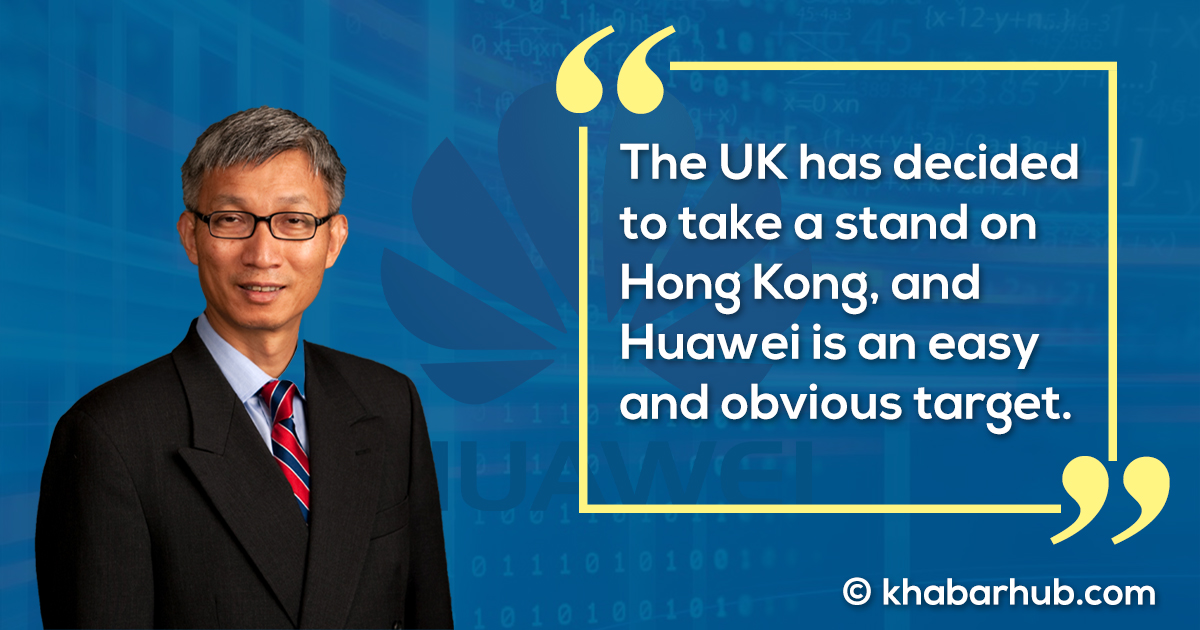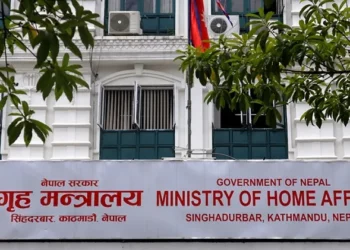The United Kingdom’s decision to ban Huawei from its 5G networks has dealt a painful blow to China. Until recently, China was still counting on the UK to stick to its earlier decision to allow the Chinese telecom giant to supply non-core equipment for the country’s 5G networks.
But two recent developments made such a decision untenable. The first was the United States’ escalation of its war on Huawei. The US instituted a new sanction in May banning suppliers that use American technology from providing semiconductors to Huawei.
Because US technology is used to manufacture the advanced semiconductors that Huawei’s products, including 5G base stations, require, the company’s supply will be cut off, making production of its 5G equipment in the future nearly impossible.
The prospect that a key supplier of the UK’s 5G networks would no longer be able to build and maintain its system is a far more serious threat than potential Chinese snooping is. No responsible government can afford to take such a risk.
Chinese leaders might think that the UK is too weak to fight back. Clearly, they are wrong. The UK has decided to take a stand on Hong Kong, and Huawei is an easy and obvious target.
So, Huawei’s days were numbered as soon as the US government pulled the trigger in May. The only question was when Prime Minister Boris Johnson would tell President Xi Jinping the bad news.
The second development, which made it politically easier for Johnson to embrace the Huawei ban, is China’s imposition of its new national security law on Hong Kong.
This draconian legislation, which was proposed in late May and passed by China’s rubber-stamp parliament on June 30, has for all practical purposes ended the autonomous status of the former British colony.
From the UK’s perspective, China’s action is a blatant violation of the 1984 Sino-British Joint Declaration on Hong Kong, which includes China’s pledge to respect and protect the city’s legal system and civil liberties for 50 years after its reversion to Chinese rule in 1997.
Chinese leaders might think that the UK is too weak to fight back. Clearly, they are wrong. The UK has decided to take a stand on Hong Kong, and Huawei is an easy and obvious target.
China may be tempted to strike back, and would seem to have plenty of leverage. It can squeeze UK firms doing business in China.
To punish Australia for daring to call for an international investigation into the origins of the COVID-19 coronavirus, China imposed tariffs on Australian barley and threatened other punitive measures.
For example, the British banking giant HSBC is especially vulnerable to bullying, because its operations in Hong Kong account for slightly more than half of its profits and a third of its revenue.
China may also want to cut down financial transactions it conducts through London and reduce the number of Chinese students it sends to UK colleges and universities.
But such retaliatory measures, however tempting, would ultimately boomerang. Driving HSBC from Hong Kong would surely ruin the city as a global financial center, because China would be unable to find another global bank to take over its vital role.
Given the spiraling tensions between the US and China, it is hard to imagine that China would favor Citi or JP Morgan Chase as a successor to HSBC.
Similarly, restrictions on studying in the UK would hurt China more. Currently, about 120,000 Chinese study in the UK.
The challenge for China is that there are few good alternatives if it wants to send students elsewhere. The US is considering restricting Chinese students on national-security grounds.
China has threatened Australia that it will reduce the number of Chinese tourists and students. Canadian universities, which now host about 140,000 Chinese students, have limited capacity.
With an inflated sense of their power, they have overplayed a weak hand and driven friendly or neutral countries such as the UK, Canada, India, and Australia into the arms of the US, now China’s principal geopolitical adversary.
With China and Canada embroiled in a diplomatic standoff over the extradition to the US of Huawei’s chief financial officer, Meng Wanzhou, it is unlikely that China will send more students there.
This merely illustrates the daunting reality Xi now faces: China is fast losing friends just when it needs them most. In the last few months alone, China’s relations with India have suffered a devastating blow after a bloody border clash left at least 20 Indian soldiers (and an unspecified number of Chinese soldiers) dead.
To punish Australia for daring to call for an international investigation into the origins of the COVID-19 coronavirus, China imposed tariffs on Australian barley and threatened other punitive measures.
On July 14, China’s foreign ministry denounced Japan’s recent Defense White Paper in unusually harsh language, raising doubts about the rapprochement Xi has been trying to engineer with Prime Minister Shinzo Abe.
Chinese leaders have only themselves to blame for their growing international isolation.
With an inflated sense of their power, they have overplayed a weak hand and driven friendly or neutral countries such as the UK, Canada, India, and Australia into the arms of the US, now China’s principal geopolitical adversary.
So, as China’s leaders ponder how to respond to the UK’s ban on Huawei, they should heed the first rule of holes: when you are in one, stop digging.
(Minxin Pei is Professor of Government at Claremont McKenna College and a non-resident senior fellow at the German Marshall Fund of the United States)
Copyright: Project Syndicate, 2020









Comment